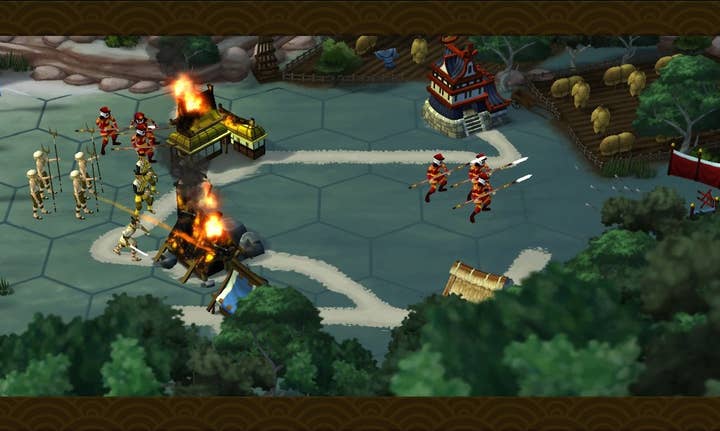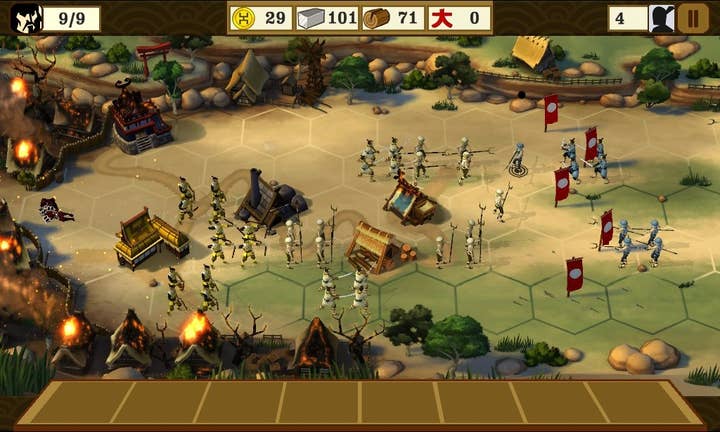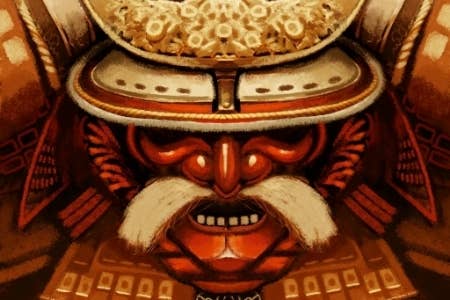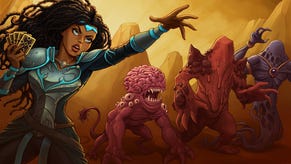The Creative Assembly: Losing The Race To The Bottom
The team behind Total War Battles on the "mid-core" revolution and the value of fighting the trend towards free-to-play
In exactly two months, the games press will ply the world with endless articles declaring the best releases of the year. Generally speaking, these lists are utterly predictable mixes of the same group of AAA blockbusters, with an indie darling in each half of the top 10 for balance. This year will be different.
Right now, my personal list would begin with Trials Evolution, Fez, Mark of the Ninja, Journey, Hotline: Miami and The Walking Dead, with the only AAA product threatening to crash the top 5 being Dishonored. In their brevity, accessibility and value, these games represent the very best of what the digital market can offer. They have the sort of focus and personality that is almost always lost over the course of 30 feature-packed, cinematic hours.
"A company like Sega, we need to be better than a lot of the companies out there: you need to set the bar high, to set the standards; a code of conduct almost"
Nick Farley, lead artist
This view was put to me by Renaud Charpentier, lead designer of Total War Battles: Shogun, an iOS offshoot of the popular strategy IP and the first game from The Creative Assembly's digital team. I met Charpentier and Nick Farley, the game's senior artist, at Unity Technologies' annual Unite conference. Both are in high spirits, if somewhat bleary-eyed, after picking up the "Golden Cube" at the previous night's awards ceremony. Not bad for a first try, though perhaps understandable given The Creative Assembly's experience and resources.
"The three main leads of the project, we are all industry veterans," Charpentier says by way of explanation. "I would say the most helpful experience was console development, because all these handheld platforms are fairly close to consoles. They are, in fact, consoles, so you have the same kind of being very wary with your memory management."
"An iPhone is basically a PlayStation 2 and a half," Farley adds. "It's got a lot of memory, the processing speed is really good, but shader-wise and what you can do CPU-wise, it's more akin to high-end PlayStation 2 level."
Certainly, Charpentier, Farley and lead programmer Mattijs van Delden have crafted a truly impressive product, one that harnesses the strengths and sidesteps the weaknesses of the hardware. And it took time: Charpentier recalls the moment he first sat down to plan Total War's entry into the digital space, just him and a blank Word document. From that point, assembling a team and producing the game took 18 months; at its peak, there were between 15 and 20 people working on the project, including sound designers, animators, technical artists, video team and the company's mo-cap studio.

Most iOS developers would consider these resources luxurious, but Charpentier and Farley view them as near necessities. They have few illusions about the world in which the iOS and Android versions of Total War Battles: Shogun must exist: a vast, crowded landscape of micro-games, very few of which were made with the time and consideration they have invested, very few of which cost more than 79p.
"We live in the land of the clones at the moment," says Farley, referring to the huge number of mobile and social games. "There are so many clone games out there, and we really want to avoid that. A company like Sega, we need to be better than a lot of the companies out there: you need to set the bar high, to set the standards; a code of conduct almost."
"I think we're devaluing our product by selling it so cheaply. We're devaluing the experience, and we're dumbing down the experience"
Nick Farley, lead artist
At present, Total War Battles is on sale for £2.99 ($4.99 in the US), which, however absurd it may seem, puts it at the very top end of pricing on both iOS and Android. Charpentier and Farley understand that this makes their game an exception, and the overall trend towards tiny price-points and in-app purchases is the cause of some concern. Eventually, the free-to-play model may find a better balance between generating revenue and quality of experience, but, in Farley's view, at present it is responsible for many games being under-produced and over-simplified. Can that environment really support a game selling for the princely sum of £3?
"I don't think it can even support games selling for 79p," Farley replies. "When I was first buying games for my Atari 800 XL 8-bit computer the cheapest game you could get was £1.99, and that was 1984 or something.
"This is personal, and I don't represent Sega by saying this, but I think we're devaluing our product by selling it so cheaply. We're devaluing the experience, and we're dumbing down the experience. I've got nothing against Tiny Wings, I've got nothing against Angry Birds. I mean, Cut The Rope is a fantastic game, but that should sell for £4, not 79p... When you sell a game for so little you have to sell millions of them to make the economics work."
But that was never part of The Creative Assembly's plan. The week following our interview, Total War Battles launched on Steam, and it's fair to say that it seems more at home in an environment where quality is at least as important as volume. In Charpentier's terminology, Battles is a "mid-core" product, very much in line with Limbo, World of Goo and the games mentioned at the beginning of this article. In his view, this new sector is where all of the most interesting work is being done.

"The plan was to address the entire digital space, and you obviously have to start somewhere," Charpentier says. "Smartphones are just the harder thing to do, so it was a good first target, but our plan for what to do next was really to become a digital team that will address all the devices and stores that you have access to. Whatever you have in your pocket - a netbook, a laptop, a Microsoft Surface - it will be fast to download, and it will have deeper gameplay.
"There are many tap-tap casual games, but that's not what Total War is about and it's not what Creative Assembly is about. We're doing mid-core games, and there's a lot of room for that. Casual games on smartphones and Facebook are introducing games to many people, but over time they will want something more."
"If you looked at Zynga two years ago you would think that everything in the future was going to be free-to-play. But Zynga is already in trouble"
Renaud Charpentier, lead designer
The very fact that their product stands out against the backdrop of iOS and Android should work in its favour, and, along with other high-end releases like Infinity Blade, it will help seed a healthy market for premium smartphone games - the kind of market that is already flourishing on services like Steam, Xbox Live and the PlayStation Network.
The rise of free-to-play can seem inexorable at times, almost suffocating, but Charpentier believes that an up-front price-point still holds value for the consumer. The act of paying is akin to a contract between producer and player; a tacit reassurance that the product is genuinely worth paying for.
"I see players in forums saying that if it's a free game they won't even try it - it won't be worth the time to download it and play," says Charpentier. "They are being pushed to spend money on in-app purchases all the time, and in the end some people won't think that the experience was worth it. These people are turning towards higher priced games. Plants vs Zombies, which is not a million miles away from what we're doing, did very well on iOS for over two years, and they still sell it for £3. PopCap never went Freemium with it, and I don't think they will. That's good for us.
"The first place all that started was not on iOS; it was on Facebook. If you looked at Zynga two years ago you would think that everything in the future was going to be free-to-play. But Zynga is already in trouble, and it has proved that customers became vaccinated against those tricks... It was clever, a very clever business trick, but I'm not entirely sure it was a clever step [forward] for business in gaming."









